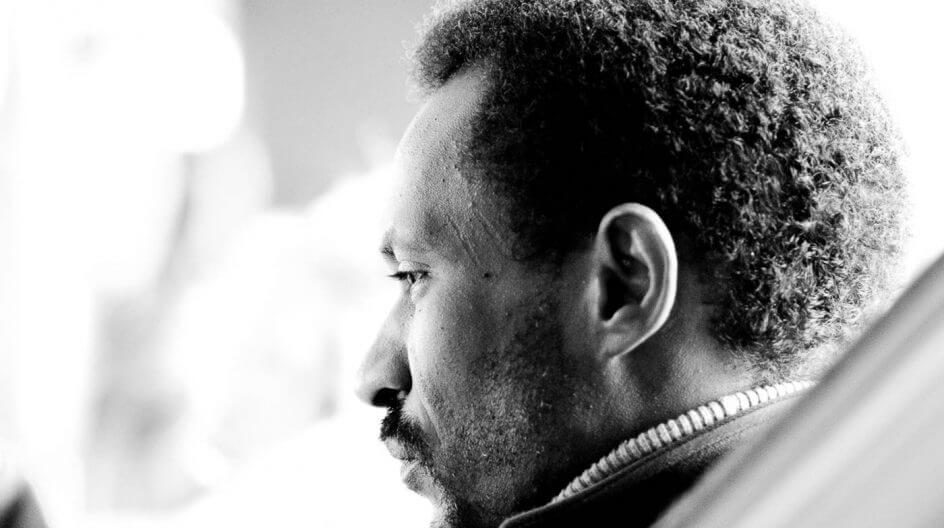These five questions are simple, but the answers can be transformative. Asking them of yourself will only take a few minutes each day, but the responses will continue to guide you throughout your life.
[Image by Luca Biada]
There’s an old Chinese proverb I love.
“He who asks a question is fool for five minutes. He who does not ask a question remains a fool forever.”
In that spirit — and at the risk of sounding like Buzzfeed just barfed all over The Art of Charm blog — I want to share five questions you should be asking yourself at every step in your journey.
The questions are simple (sometimes deceptively so), but the answers can be transformative. Asking them of yourself will only take a few minutes each day, but the responses will continue to guide you throughout your life.
So let’s explore each of the questions, and discuss some concrete approaches to turn them into an ongoing practice.
1. Am I building a brick in a wall?
For most of us — especially early on in our careers — a job can become a routine commitment designed to keep us afloat.
That job might not be an entry point to the career we really want — it might not even be in a realm we find exciting or meaningful — but we often stick with it out of habit, fear, or indifference.
If you find yourself in that situation, the question to ask yourself is not (as so many self-help experts continue to tell us) Is this really what I want to do with my life? or Is this something I’m passionate about? but something much more important:
Could this be a meaningful part of what I want to do with my life?
In other words, is what I’m doing at this job creating a piece of a larger puzzle?
Am I building, discovering, or acquiring some skill, expertise, or awareness that I can take with me to another team, role, or problem?
That perspective can transform any job — even an unpleasant or dead-end one — into a meaningful experience. Interestingly, it will also tell you when it’s time to stop learning and move on.
So as you work away, especially if you’re not in love with what you do, ask yourself the following questions:
- Am I building a concrete skill I can take somewhere else?
- Am I gaining meaningful insights about this industry?
- Am I developing an expertise in my role?
- Would my responsibilities here translate elsewhere?
- Would someone else value the capabilities I’m developing?
If the answer to any of these questions is yes, then you’re already one step closer to finding new meaning and value in what you do.
If the answer to any of these questions is no, then you have a clear choice: consciously seek out the opportunity to build those skills in your current position, or start looking for new opportunities.
Alan, an AoC listener, once wrote me an email asking for advice when he found himself a year into an unusual position: writing standard operating procedures for a shipping company. His job was basically to create these technical process documents about how freight ships manage and track goods through the supply chain.
On a good day, he said, the job was boring. On a bad day, it was tedious.
What Alan really wanted to do was to work in transportation strategy — a much higher-level position in the same field.
So I shared this question with Alan. I asked him if he was just toiling away writing SOPs or building a brick in a wall.
The answer totally shifted his perspective.
Because it was easy for him to think of this job as just another dry, unfulfilling routine in a part of the industry he didn’t care about — punch in, study process flows, knock out an SOP, then go home.
By thinking that way, he had forgotten that he was also getting a rare glimpse into the nuts-and-bolts of how goods move around the world — which is exactly what a logistics strategist needs to understand.
He literally had a front-row seat to the gritty mechanics of the industry he wanted to lead.
Was it always fun?
No.
Was it glamorous?
Definitely not.
Would it make him a compelling candidate when he decided to apply for a job at FedEx or DHL or Maersk?
You bet.
Alan’s “painful,” “boring,” “back-office” job — his exact words — were really a training ground in the core dynamics of the industry he wanted to be a part of!
A few months ago, Alan wrote me again. He was in the middle of interviews at a couple of major transportation companies. His greatest talking point?
Knowing the technical, gritty details of how inventory moves around the world.
In other words, he had built that brick.
I had the exact same ah-ha moment a few years ago.
For a long time, I handled all of our sales here at The Art of Charm, when what I really wanted to do was focus on hosting the podcast.
I can’t say I loved every moment of it, but handling sales taught me the ins and outs of our product and made me a much stronger broadcaster by teaching me about persuasion, communication, and the art of shaping conversations with our guests.
That brick — which seemed extraneous to my broadcasting interests — became an essential part of my unique talent stack.
So remember that above all else, your job — especially in your twenties and thirties, but really at every point in your life — is to acquire new skills.
Too many people quit jobs prematurely because they aren’t part of a clear trajectory, or they don’t fit into a mental map of how their career should look.
But as long as you’re developing skills, insight, or expertise, then that job is part of a bigger picture — even if you don’t know what that bigger picture is just yet.
In fact, the bigger picture tends to emerge precisely because you’re developing those skills — because a skills-based mentality leads to new opportunities, which have a way of filling out the bigger picture on their own.
2. Where’s the fun?
I was at a friend’s dinner party last week with a group of people I didn’t know.
So I struck up a conversation with a scruffy, happy-go-lucky dude sitting across from me — let’s called him Brad — who told me had just returned from Dubai, where he had spent six weeks helping his brother-in-law sell a stake in his biodegradable plastic business to some local investors.
Which honestly I found hilarious because Brad is a footwear entrepreneur. He kept saying he knew nothing about plastics, and looked like he spent most of his time on a surfboard, not thrashing out deal points in an Emirati board room.
“What was that like?” I asked.
“Hard,” he responded after a moment. “I was away from my wife and baby, in a culture I don’t really know, in a business I barely understand, wishing the whole time that I could just go home.”
I could relate. I just got married. I recently bought a home. If someone sent me on an open-ended trip halfway across the world to work in a field I didn’t really understand with people I didn’t even know, I’d be a little thrown.
“So how’d you deal?” I asked.
“Well, I just had to keep reminding myself that this was an adventure. I mean, yeah, it’s random and it’s hard, but isn’t it also pretty fun? Like in a few weeks, when I’m back in my own bed, back to my usual routine, won’t I kind of wish I were having some weird adventure overseas? Why can’t I just enjoy it now?”
“And that helped,” I said, realizing he was onto something pretty profound.
“Yeah, I guess it did. When it didn’t feel fun, I just asked myself how it could be fun, or how I could make it fun… and then it was.” He shrugged with a little laugh at that.
Suddenly, Brad made a lot more sense.
He reminded me of something George Bernard Shaw said: “We don’t stop playing because we grow old; we grow old because we stop playing.”
The human mind has a way of turning any project, goal, or enterprise into a series of manageable routines.
It’s almost certainly an evolutionary mechanism — keep things stable, reduce unpredictability, self-protect.
So a goal becomes a task. A group becomes a company. A career becomes a job.
Even shiny new opportunities eventually lose their initial excitement, and settle into yet another responsibility.
So it’s up to us, really, to keep asking ourselves: Where’s the fun?
In some cases, you’ll find that the fun was there all along, and you just couldn’t or wouldn’t see it.
Like in Brad’s case, where the stress of being away from home was obscuring the fact that he was part of a once-in-a-lifetime adventure trying to sell an unusual business in a foreign country.
(Interestingly, he was also building an unusual brick by working on the plastics deal — which shows that these first two questions are intimately related!)
In other cases, you’ll find that the fun isn’t just waiting to be discovered. You have to create it.
That might mean turning your job into a kind of game, where you create little missions and rewards to introduce an element of play into your day-to-day.
Or it might mean making an effort to connect and play with your teammates, so you can collectively have fun doing an otherwise not-so-fun task.
Or it might mean making a more significant change, like carving out a new role, applying for a new position, taking on new responsibilities, or looking for a new job entirely.
Either way, the question will guide you to a place of fun — a place of play — which, as all the research tells us, is an essential part of our developmental process.
Dr. Alan Waterman of the College of New Jersey, for example, has demonstrated the essential connection between playful discovery and identity, while Dr. John Neulinger, one of the giants of play theory, taught us that the intrinsic rewards of playful activity — which we can introduce into even our most routine obligations — have a significant impact on cognitive functioning and overall happiness.
As the University of South Alabama‘s Catherine O’Keefe explains, “Adults need to play because so much of our life is utilitarian. We need to reconnect with the things of our lives that ground us in who we really are and why we like our lives.”
In other words, play is serious business.
So keep seeking out the fun, and keep asking yourself where it’s waiting to be found in your everyday life.
3. What relationships am I building right now?
A few years after we started The Art of Charm Podcast, Sirius/XM Radio approached us to host a social dynamics show on its network.
The whole experience was a blast, but at the time, I remember thinking that this was a temporary phase, a random blip, an interesting place where we’d show up, record our show, then get back to working on AoC. Eventually, we decided to go all in our own platform, and left SiriusXM to invest in the podcast.
Looking back, I now see how many interesting people moved through the world of satellite radio, and how many more relationships we could have developed while we were there.
Because here’s the funny thing about networking.
It requires almost as much effort to avoid relationships as it does to build them.
We’re social creatures, whether or not we act that way.
We interact with people every day, even when we don’t try to seek them out.
The gap between merely interacting and actually developing relationships is where true social capital is born.
And you can develop those relationships anywhere. Even in random fields, even in fields you don’t love. In many cases, the relationships you build in those places mean even more, because you’re developing them for their own sake, before they have any immediate value.
Like the question about building bricks, this question can transform your life.
Which relationships can I build right now?
It’s a question the greatest relationship-builders in the world are constantly asking themselves.
4. What is this situation trying to teach me?
If I’ve learned anything in my time on this planet, it’s that life is never perfect — since it never plays out just as we imagine — but it is always instructive.
Relationships will hit rough patches.
Careers will get tedious.
Travel plans will go awry.
You can always count on the world to challenge you. In fact, life’s surprises are an essential part of our experience here on earth. Our flexibility as a species and the unpredictability of our world are locked in a timeless evolutionary dance: life changes so that we can grow in response. Uncertainty isn’t just part of life; it is life.
Which is why this question is so important.
Because no matter what happens to us — positive or negative, expected or surprising, helpful or confusing — we can always extract meaning from it.
And the best way to extract meaning is to ask ourselves what any given situation is here to teach us.
A few months into my first job in the law, still eager to prove myself at the firm, I found myself struggling to thrive. Suddenly, my prospects there seemed pretty dim. I realized that I couldn’t outwork everyone at the firm — I just didn’t have the passion or will to do it — and anyway, most of the associates were way smarter than me, and far more obsessed with the law.
My initial response?
“There’s no way I’m cut out to be a top performer. Not here, not anywhere. I fought like hell to get this job, and now I can’t even compete. I’m definitely getting fired. Working this hard to get into the law was a mistake. I must have seriously miscalculated. Now I’ll have to start from scratch.”
A few weeks later — struggling more than ever, but still hanging on — I started to get curious about what this unexpected situation was trying to teach me.
If I was having a hard time, then the challenge must have been trying to teach me something.
That’s when I realized that if I was going to survive in that place, I’d have to develop a new competitive advantage.
The other associates could apply their impressive legal minds and endless horsepower to pull all nighters and get our deals done. Their skills and capital fell perfectly within the job description, and thank goodness for that, or we’d have no attorneys.
Meanwhile, I decided to be the guy who would develop relationships inside and outside the firm, and start getting to know what the people behind our deals needed.
My skills and capital would fall beyond and around the job description, and thank goodness for that, or I would still be a mediocre attorney who never discovered my real purpose.
Of course, the rest is history. Those early relationship-building skills led me into the world of social dynamics, and ended up helping me launch The Art of Charm.
Ever since then, I’ve treated every single challenge in my life as an opportunity to learn.
Difficult vendors, lackluster sales months, disappointing trips, tough conversations, and even smaller challenges, like a rough Chinese lesson or feeling down — I’ve learned to treat all of them as life’s way of teaching me something I need to learn.
Seneca said that no man was ever wise by chance.
There’s a reason we become wise, and that reason is experience, coupled with a deliberate curiosity about how that experience functions to serve us.
Seneca is also famous for this little gem:
“If you really want to escape the things that harass you, what you’re needing is not to be in a different place but to be a different person.”
The best way to become a different person?
Ask yourself what you’re here to learn.
5. What can I be doing today?
If there’s one thing that stops us from chasing what we want, it’s fixating on how big, abstract, and daunting it seems.
Focusing on the end result of our goals keeps us paralyzed, and usually acts as an excuse not to pursue them.
Because if our goals really are that big, then how can we possibly achieve them?
The answer, of course, is that we don’t have to achieve them — not today.
We only need to chip away at them.
But the mental picture we create with our ambition — which is always blurry, overwhelming, and far in the future — tends to induce a kind of nihilism, where we end up feeling that any effort we make is hopeless.
Which makes total sense. The problem isn’t that our efforts are too small, but that we’ve made the end result so big! With that mental frame, we’d be crazy not to doubt ourselves.
This is an extremely common and destructive pattern we need to break.
And the best way to break it is to ask ourselves what we can be doing today.
Not what we’re trying to achieve in or six months, or two years, or five years, but what we can be doing today.
What are the tiny, bite-sized steps we can work on right now?
What manageable aspect of the task can we focus on today?
What are three small, concrete steps you can take at this moment?
I remember watching this interview with Philip Roth a few years back. He said that whenever he felt overwhelmed by the enormity of a new book, he just reminded himself that all he had to do was write the next sentence.
That, he said, was his job.
To write the next sentence.
That’s how you write dozens of novels and win a Pulitzer Prize. Not by fixating on the four hundred pages or the greatest literary prize on earth, but by showing up every day. Talent and capability matter, of course, but they mean nothing without small and steady commitments.
We only need to act, a little bit, each and every day.
Over time, we chip away at our goals, and wake up one day to find we’ve accomplished them.
This practice becomes a way of protecting ourselves from the paralysis of getting things done. We almost have to will ourselves into a state where the bigger picture doesn’t exist, so we can focus on the tiny pieces that make that bigger picture come to life.
So when it comes to the amount of work you do today, try asking yourself this question:
How unambitious can I be?
How small and insignificant can I make my tasks?
It’s counterintuitive, and it goes against our culture’s obsession with doing more and being bigger — but it absolutely works.
It’s like David Mamet said:
The nails don’t have to look like the door; only the door has to look like the door.
The door doesn’t have to look like the house; only the house has to look like the house.
The house is made up of the door, and the door is made up of the nails.
If the house is your goal, and the door is your milestone, and the nails are the tiny tasks you can do every day, then forget about the house — just work on your nails. Three nails a day, every day, compounded over time, will build a house.
This question has absolutely changed my life, and I’ve seen it change hundreds of our students’ lives. I ask it of myself every time I remember what I’m trying to build here at AoC, and think: I can’t. It’s just too big.
So I make it small. The smaller the better.
And then I do it, making sure to ask myself all five of these questions every single day.



